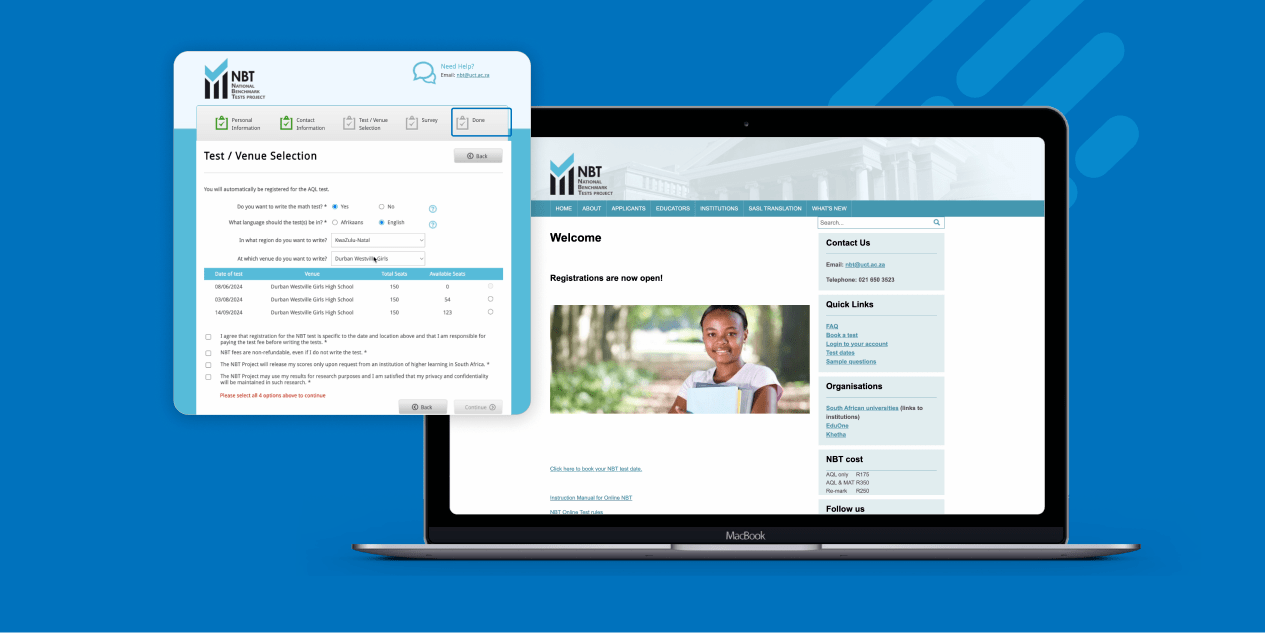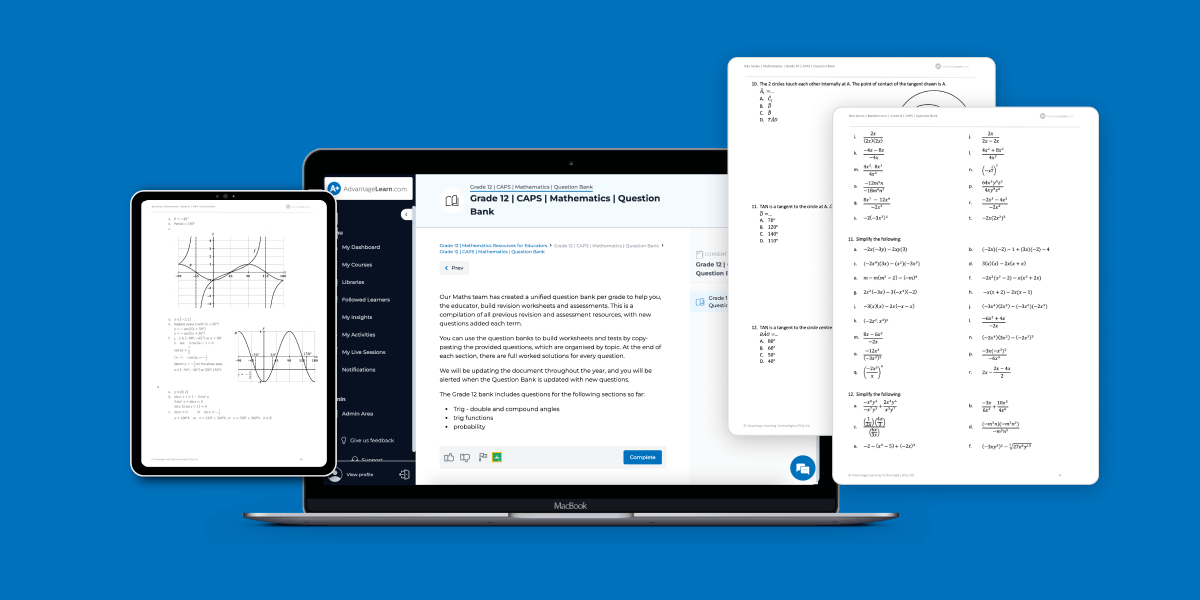
Why do I need to learn this when I can just google it?
Education
The team speaks
Student tips


“Why do I need to learn this when I can just google it?”
I wouldn’t be surprised if this question is asked daily by some student or other somewhere in the world. It is possibly the most annoying question to hear as a teacher when you are trying to motivate your class to learn something new; be it some theory that the class needs to commit to memory or a solution algorithm/procedure for solving a new section in trigonometry. And in this day and age, with the widespread use of smartphones and knowledge literally at our fingertips, this question has gained increasingly more weight than ever before.
I do not doubt that any of us have the information available to us via the internet to solve absolutely any technical problem from the ground-up but there are three main problems with resisting learning things or resisting committing things to memory on the basis of the broad availability of knowledge nowadays;
Not storing some information in your mind comes at a loss of speed and efficiency in terms of solving things…
To highlight this, imagine a surgeon in the ER didn’t know human anatomy like the back of his hand and had to google the physiology of the abdomen before performing an emergency surgery on a patient suffering from a stab wound to the stomach. Given that the wound was life-threatening, it is almost guaranteed that the time the surgeon would need to establish a functional knowledge of the abdomen to effectively operate would be too long to save the patients life – an extreme and dire example of the time-cost of not committing some knowledge to memory.
To bring this a little closer to home, if you or your child are gearing up to write the NBT and are banking on using the datasheet for every mathematical formula that might be required in the MAT test, be warned, this might be the reason that you find yourself unable to complete the paper in the allocated time as you burn time referring backwards and forwards between the question and the datasheet.
Not committing theory or methods to memory is a lost opportunity to extend your mind…
Have you ever heard the phrase “your mind is a muscle.” Well, this speaks directly to this point. If you do not practice committing things to memory, then you will not grow your mind’s capacity for this ability and also not learn the clever memory techniques out there that can assist you in keeping knowledge close at hand.
The converse to the above argument is that not committing things to memory could lead to a more resourceful student who is able to research and find what they need faster than somebody who relies on committing things to memory and growing the knowledge bank in their mind. Having said that, in order to happen quickly, effective research generally does require a base knowledge on the topic in question. In the fast-paced world of work that we live in today people want answers and they want answers quickly. So either way, committing some knowledge to memory will mean that you’ll start on a higher rung of the ladder towards the solution that you are looking for than your peers who opt to repeatedly take the lazy approach of arguing “Why do I need to know this when I can just google it?”
Googling to help with your Mathematics can be a complete waste of time…
Recently Advantage Learn has been working with an organisation called the Bhambayi Project Durban (specifically their maths club). Providing the learners with tablets and access to the internet, we saw how the learners would google the titles of the sections in their text books and open up videos which were far beyond their current level of understanding; even going so far as copying equations off google images. Sadly they were not learning effectively and this was causing more confusion than being helpful to them.
This is what makes Maths Online so valuable to students’ education – the platform which we have opened to the learners at the Bhambayi Maths Club with the help of sponsorship from Investec. When they need help, instead of turning to google, they can turn to a well-structured learning path which focuses on the syllabus and level of understanding which is relevant to their schooling system (South African curriculum) and Grade. This is far more helpful and structured compared to clicking random links on google which can lead to becoming lost and entangled in the world wide web.
Google can be very helpful for finding information and answers, but that in itself becomes an acquired skill of finding out where to find good information sources and how to filter information effectively. It is always best practice to use well-known and trusted websites, and where possible, local websites which speak directly to you and your context.
This article was originally published on 14 May 2018
About the author
Crispian Lees
Cris is our Head of Education at Advantage Learn. A chemical engineer by qualification, he is passionate about Maths and Science education and is a proud South African and Durbanite.

How to book your NBT test: a step-by-step guide
NBT
Featured
Booking your National Benchmark Test (NBT) is a crucial step in your journey towards university admission in South Africa. Here’s a detailed guid... Read more

Resource Drop: Grade 8-12 Maths Question Banks
Maths
Education
Neo Series
Featured
As educators ourselves, we understand the myriad of challenges faced when curating materials for effective teaching and assessment. It’s a balancing ... Read more

Class of 2023 Further Studies Results
Further Studies
Thriving on a challenge The Independent Examination Board (IEB) released the results of their International Secondary Certificate (ISC) on the... Read more
Do you want better Maths results?
Maths Online is a bank of over 2000+ extra lessons. Furthermore, gain access to our teacher support to help you when you need it!
More info

























